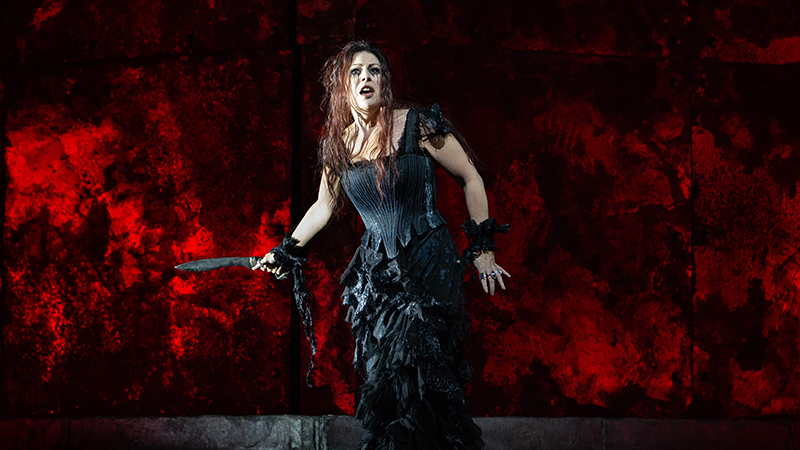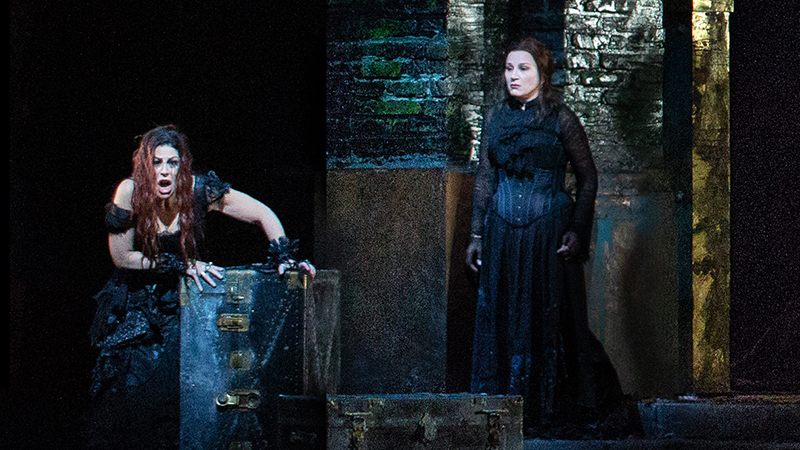-
10 Things to Know about MEDEA
By COC StaffPosted in 23/24 Season
Luigi Cherubini’s Medea is revered as one of the most difficult works in the operatic canon: a rarely performed masterpiece of unparalleled emotional and musical intensity. This season’s new production from acclaimed director Sir David McVicar, starring international sensation Sondra Radvanovsky in the title role, brings the story of the vengeful sorceress Medea to fresh life in what promises to be a landmark event.
Read on for 10 Things To Know about Medea.
BUY TICKETS
Mythical beginningsThe Greek myth on which Cherubini’s opera is based was first dramatised in a play by Euripides in 431 B.C. In it, Medea is a princess from Colchis living in Corinth with two sons fathered by Jason, whom she helped to capture the Golden Fleece. When Jason abandons her to marry a Corinthian princess, Glauce, Medea seeks vengeance by murdering Glauce and her father, King Creon, before also taking the lives of her own sons. Despite these acts, she retains the sympathy of the gods and escapes to Athens in a divine chariot.She’s not from around here
The fact that Medea is a foreigner from Colchis—a place considered by the wealthy and urbane Corinthians to be primitive and filled with excessively emancipated women—is a telling detail. Located on the Black Sea coast in present-day western Georgia, Colchis has also been considered as a possible homeland for the mythological warrior women, the Amazons.Cherubini’s Medée
Cherubini’s opera, which originally featured a French libretto, made its world premiere at the Théâtre Feydeau in Paris in 1797. Composed towards the end of the French Revolution, it presents a musical and dramatic bridge between the Classical and Romantic eras, while also capturing a sense for the shocking cruelty and bloodshed of the recently concluded Terror.
Sound familiar?
Ludwig van Beethoven was a contemporary of Cherubini’s who rated the composer extremely highly. Beethoven is known to have owned a score of Medée and may have based themes in his Pathéthique Sonata on figures from the opera.

Once more, in ItalianCarlo Zangarini’s Italian translation for the opera’s premiere at La Scala in 1909 became the standard version performed for the rest of the twentieth century. This version also introduced new recitatives that replaced the old spoken dialogue.
The ultimate diva roleThe singer who plays Medea is on stage for almost the entire opera, in a role that is musically and dramatically complex as well as being physically highly demanding. From her Act I aria with Giasone to the furious destruction of the final scene, Medea is a scorching presence on stage: a character whose capacity for passionate love and the cruellest violence makes her one of opera’s most challenging parts to play.
An iconic performance
Arguably the definitive Medea to date was portrayed by the legendary American-born Greek soprano Maria Callas in the 1950s and 60s. Having learned the role in just one week, she starred in the 1953 Florence revival to critical acclaim. This was followed by performances at La Scala (with Leonard Bernstein conducting), Dallas Opera, the Royal Opera House, Covent Garden, and the Ancient Theatre of Epidaurus in Greece.The next great Medea
The role of Medea is famously difficult, reaching the very top of the soprano vocal range. Director Sir David McVicar has described operatic superstar Sondra Radvanovsky as “one of the few sopranos in the world that could take this on.” Having triumphed in the Met’s premiere production of Medea in 2022, Radvanovsky brings the role to the COC in 2024 in a theatrical event that is not to be missed.
An exclusive design
Sir David McVicar developed the set design for this production while quarantining at his home in Scotland during the COVID-19 pandemic. Featuring massive walls, mirrors, barriers, and doors, the set emphasizes Medea’s isolation and exclusion from not just society but those she loves most dearly.
Shifting interpretations
The story of Medea has undergone a range of readings by artists and writers across the centuries, with some representations stressing the heroine’s feminist attributes, and others applying psychoanalytical, political, and philosophical lenses to her actions. Join us this season for a stunning new production of Cherubini’s Medea to experience this timeless and endlessly compelling tale—and judge for yourself!
Medea runs from May 3-17, 2024 at the Four Seasons Centre for the Performing Arts.
BUY TICKETS
